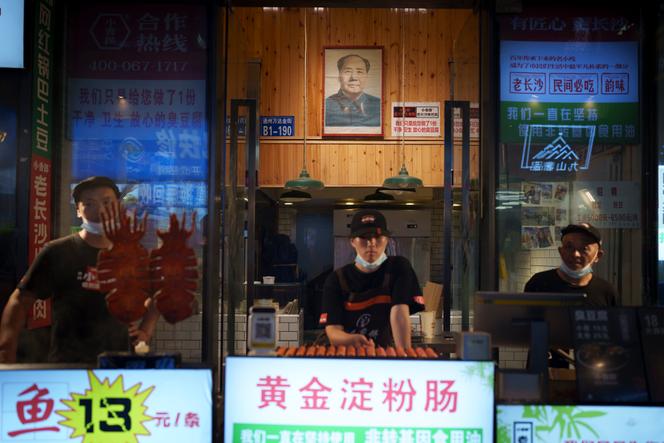


China has much to boast about. Its economy became the world's second largest 14 years ago, and is now four times larger than that of its nearest rivals, Germany, Japan and India. It aims to send astronauts on the Moon before the end of the decade, has its own space station and three aircraft carriers. Its brands, such as the world's leading electric vehicle manufacturer BYD, sponsor events such as the Euro football championships and the Olympic Games. By 2023, the People's Republic had installed more solar panels than the whole of the United States combined, and has more high-speed rail lines than the rest of the world.
How, then, to explain the debate that has emerged on social media since the autumn of 2023, around the notion of "wasted time," a reference to the final minutes of a basketball game – very popular in China – where the score difference is so great that the athletes no longer find the point of engaging.
Although the country has not sunk into a serious crisis, many citizens are gripped by a form of pessimism, believing that the years of prosperity are behind them. Some wonder whether the era of reform and openness is over. A quarterly survey of household morale conducted by China's central bank among 20,000 people in 50 cities showed in the first quarter that 46% of Chinese consider the job market situation "difficult," 43% consider it "average" and 10% "good"; 69.6% feel their income is staying the same, 17.3% see it falling and only 13.2% think it's rising.
The property market, where the Chinese have invested most of their savings, has been in decline for over three years. The space for civil society, the room for debate for intellectuals, artists, religious or sexual minorities has continued to shrink, and no political change is on the horizon since Xi Jinping abolished the two-term presidential limit in March 2018. "China's reform movement urgently needs a new breakthrough," was the bold headline of an editorial in the respected magazine Caixin in November 2023.
That's why all eyes are on the meeting of the Chinese Communist Party (CCP), which takes place from Monday, July 15, to Thursday, July 18, in Beijing. It is customary for seven "plenums" of the 205 full members and 171 alternate members of the CCP Central Committee to be held in the five years following a congress, the third of which is devoted to the broad economic and social guidelines for the future. It was on this occasion, in 1978, that Deng Xiaoping endorsed the policy of openness and reform.
You have 65.29% of this article left to read. The rest is for subscribers only.
